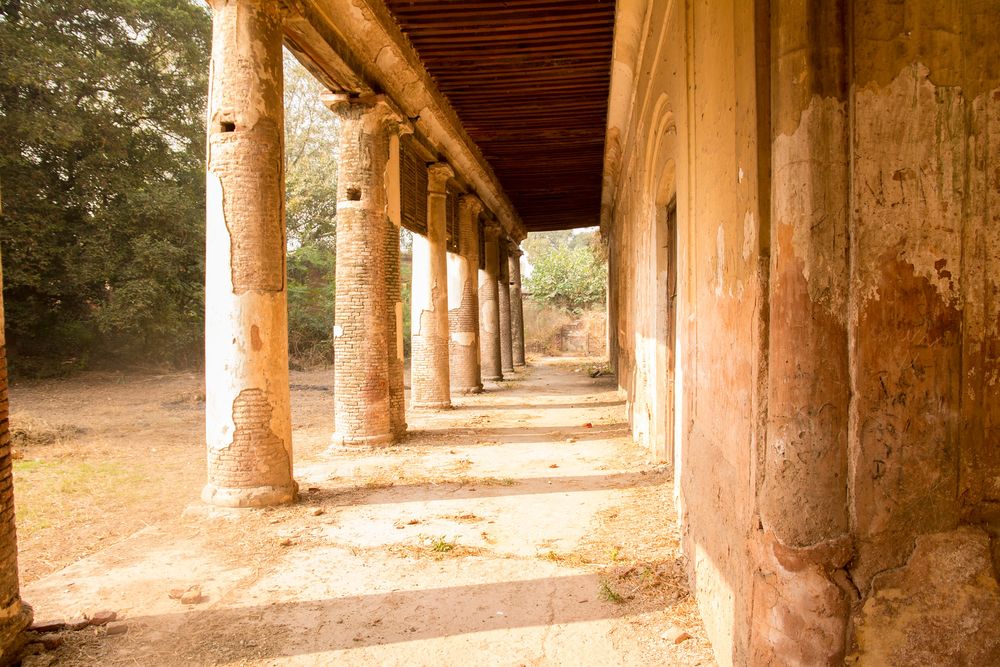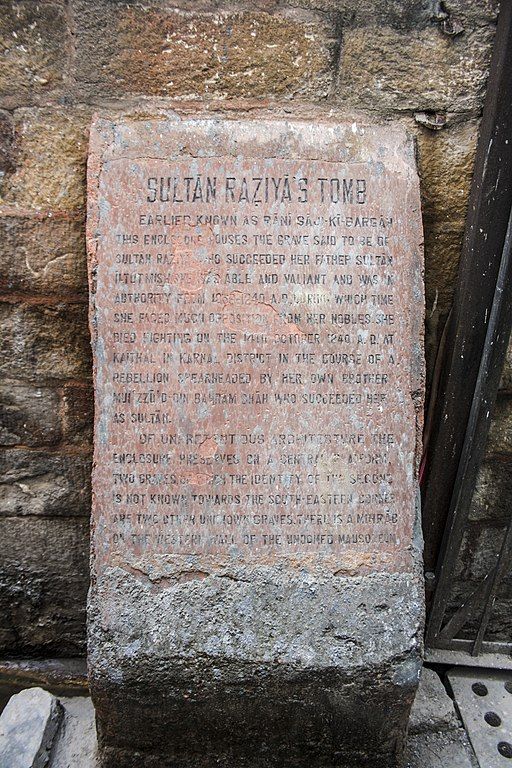Tales of female courage and prudence, power and fortitude run long in the pages of Mughal history. Women who were daughters, who were begums and concubines, led development and won politics from behind the purdah, taking charge under their sultan’s pervasive reign to transform cities and develop military strength. But one out of them, the exceptional Jalâlat-ud-Dîn Raziyâ, altered history by taking over the reins right at the forefront, becoming the first and only woman to rule over the Mughal empire as emperor of Delhi in 1236 AD. The feminine veil was dropped, the chin held high in front of a conservative patriarchal Muslim dynasty, and Razia became sultan instead of sultana (wife or mistress of the emperor).

Art by Hussam ul Wahid/Flickr
Growing Up to Lead
The sultanate was young and fiery in the 13th century, with Sultan Iltutmish having wrested the throne of the Slave dynasty. The lineage had been established years back by Quṭb al-Dīn Aibak, who worked as a slave and managed to succeed the great Muhammad of Ghor. But in a swift battle in 1211, his successor Aram Shah was defeated by Iltutmish. Razia was Sultan Iltutmish’s daughter, and sister to a dynamic group of sons, none of whom the emperor deemed fit for the throne.
Instead, Iltutmish believed that his one daughter was at par with 20 sons. At a time when girls were shunned from education, he decidedly trained Razia in archery and horse riding, military administration and warfare. The teenager was seldom seen in the harem steaming her hair or gossiping with ladies. Instead, Razia played sports that women watched from behind the purdah and influenced court affairs and military command under her father’s mentorship. As Ibn Batuta would later say, “She rode on horseback as men ride, armed with a bow and quiver, and surrounded with courtiers. She did not veil her face.” In 1231 AD, when Iltutmish was away besieging the Gwalior Fort, it was Razia who took over the affairs of Delhi in his absence. On coming back, the ruler realised the capability of the hands he had left his capital in. Disappointed in his megalomaniac and debauched sons, he named Razia as his most able successor to the throne.
But acceptance of a woman at the throne was not to come easy. Upon Iltutmish’s demise, his eldest son Rukn-ud-din Firuz was named the next sultan by the court of nobles. It was only when he and his mother were assassinated some six months in 1236 AD later that the nobility had no option left but to accept Razia as their sultan. Having grown up under a progressive parentage, Razia was a progressive monarch herself. During her reign she worked towards abolishing racism, fortifying the road network of the country and ensuring that educational and cultural institutions flourished.

Present day ruins of Qila Mubarak. Photo: R. Karthik/Flickr
As the emperor, Razia became the commander in chief of the Qila Mubarak in Bathinda. By the end of her four-year reign Malik Altunia, the then governor of Bathinda, fell in love with Razia Sultan. Colluding with her unworthy brother Bahram Shah, the governor laid an attack on Razia’s forces. Parallelly, the anger of conservative Turkish nobles was culminating into a fierce rebellion from the inside. By the end of the battle, Razia was captured and Bahram made the emperor. As ransom, Malik asked for Razia’s hand in marriage, which she accepted in exchange for her life. Some said that it was Malik Yaqut, her mentor since teenage, whom Razia had been in love with. But the man was killed in the bloody battle taking away all hopes of confirming a rosy future.

Sultana Raziya's tomb. Photo: Indrajit Das/Wikimedia
Unfortunately, Bahram attacked Altunia’s army soon and Razia too was assassinated along with him in October 1240. But her name went down in history as a cemented plaque near Delhi’s Turkman Gate, reminding passersby of the power that the courageous woman conquered in a man’s world.
References
# The Hindu
# The Better India
# Razia Sultan - The Great Monarch












Comments
Post a Comment